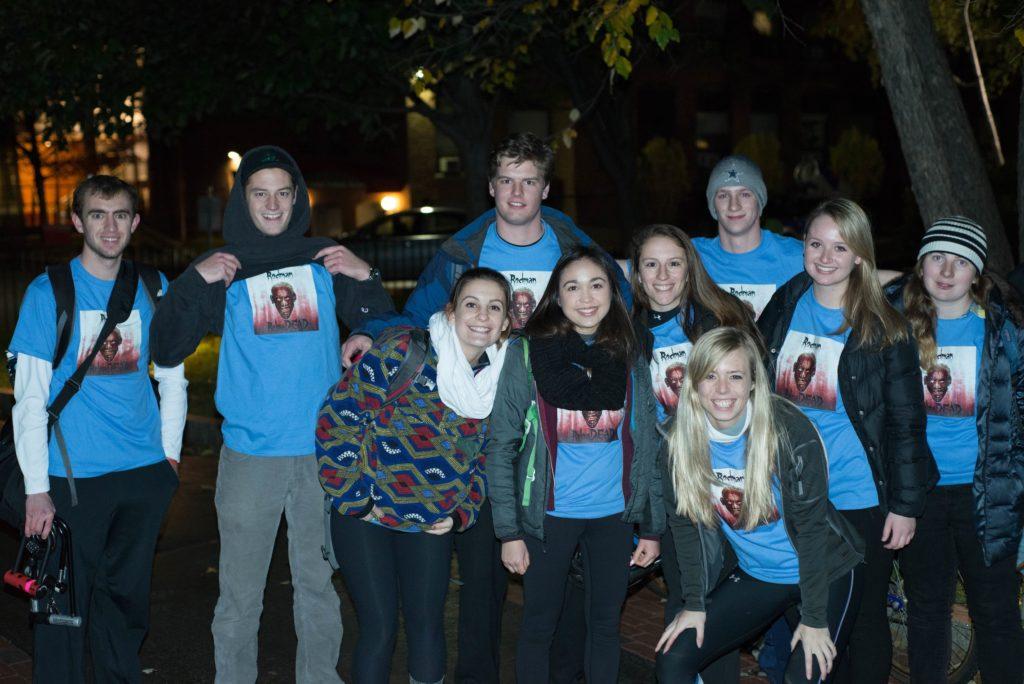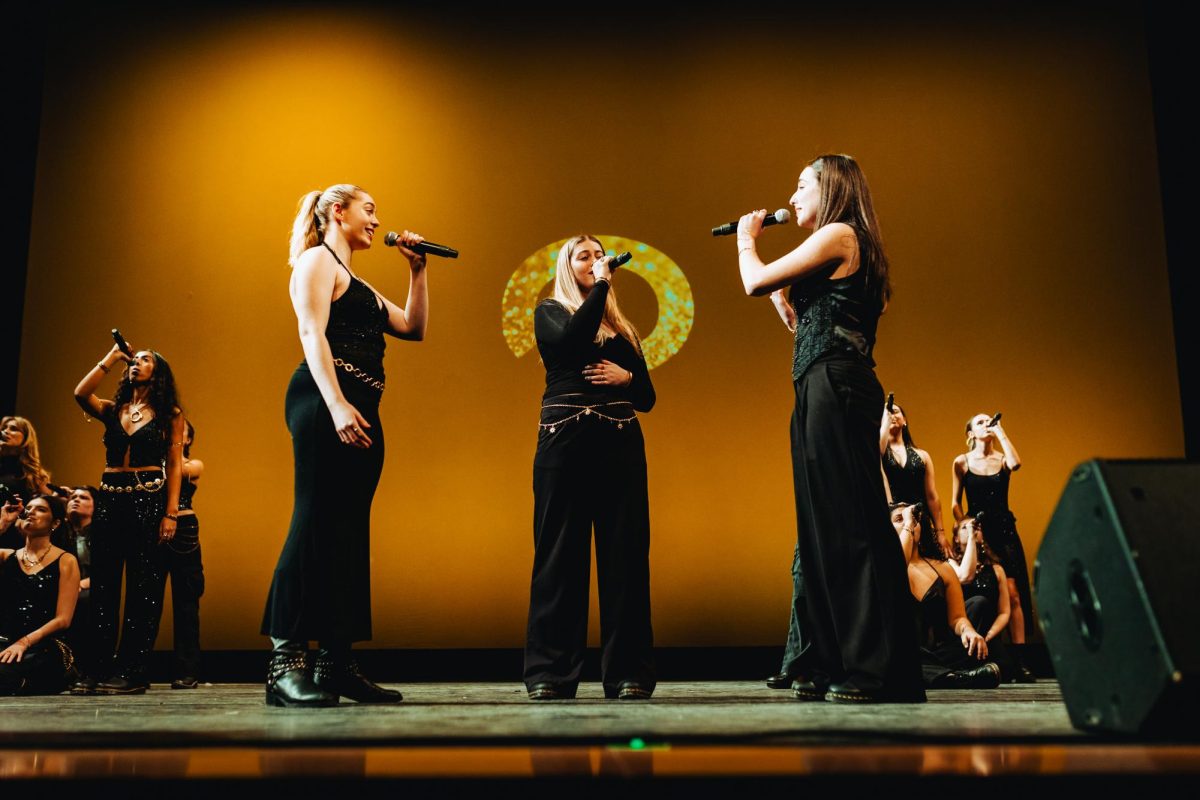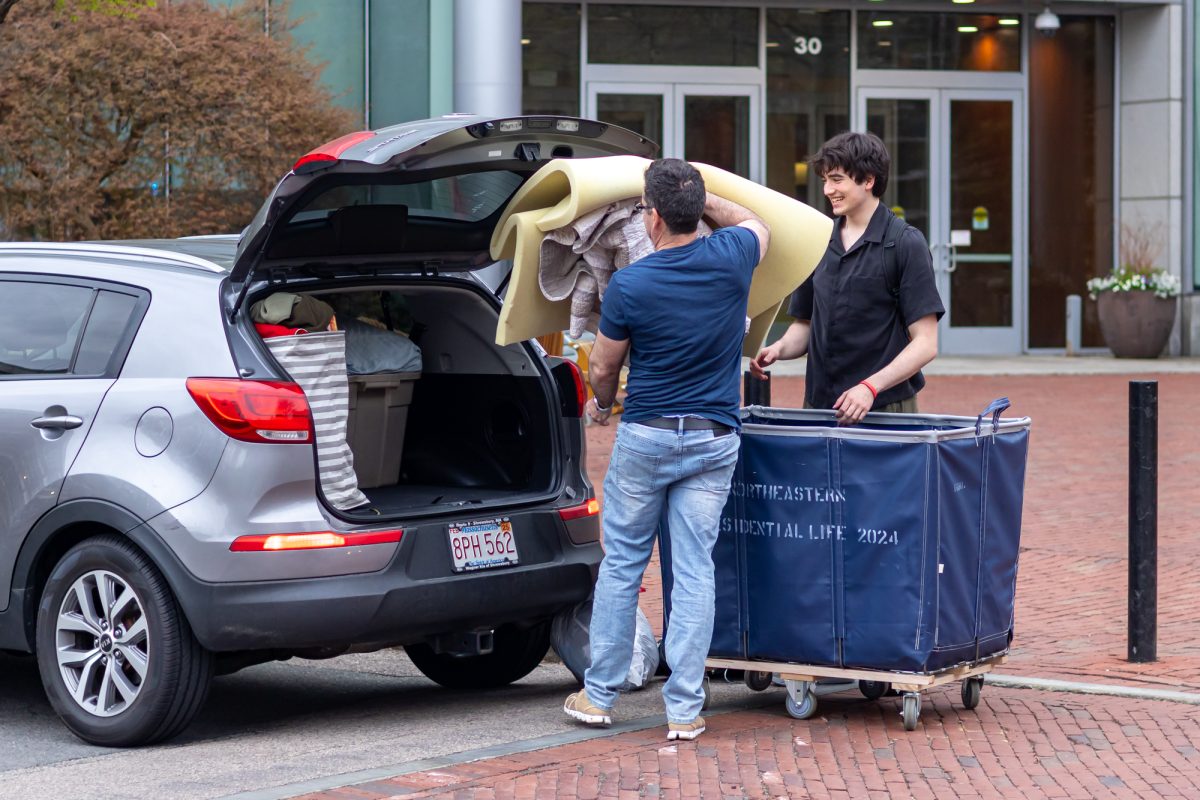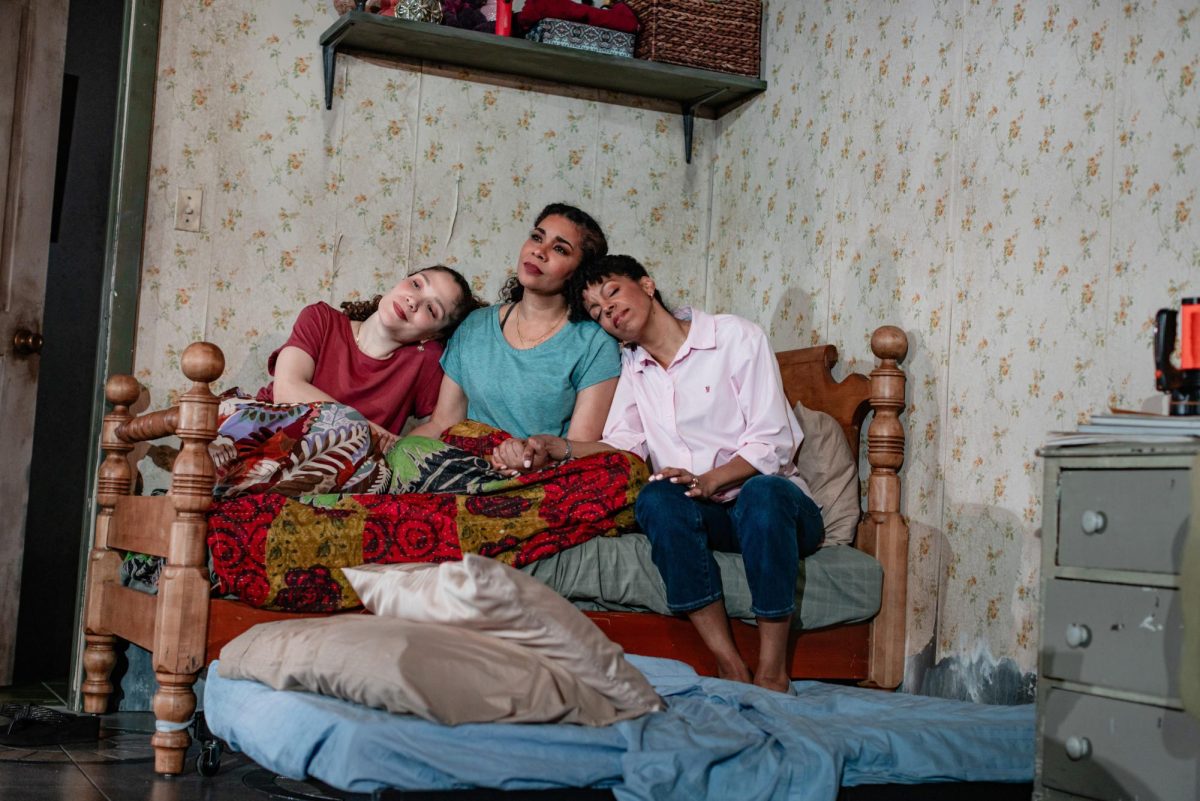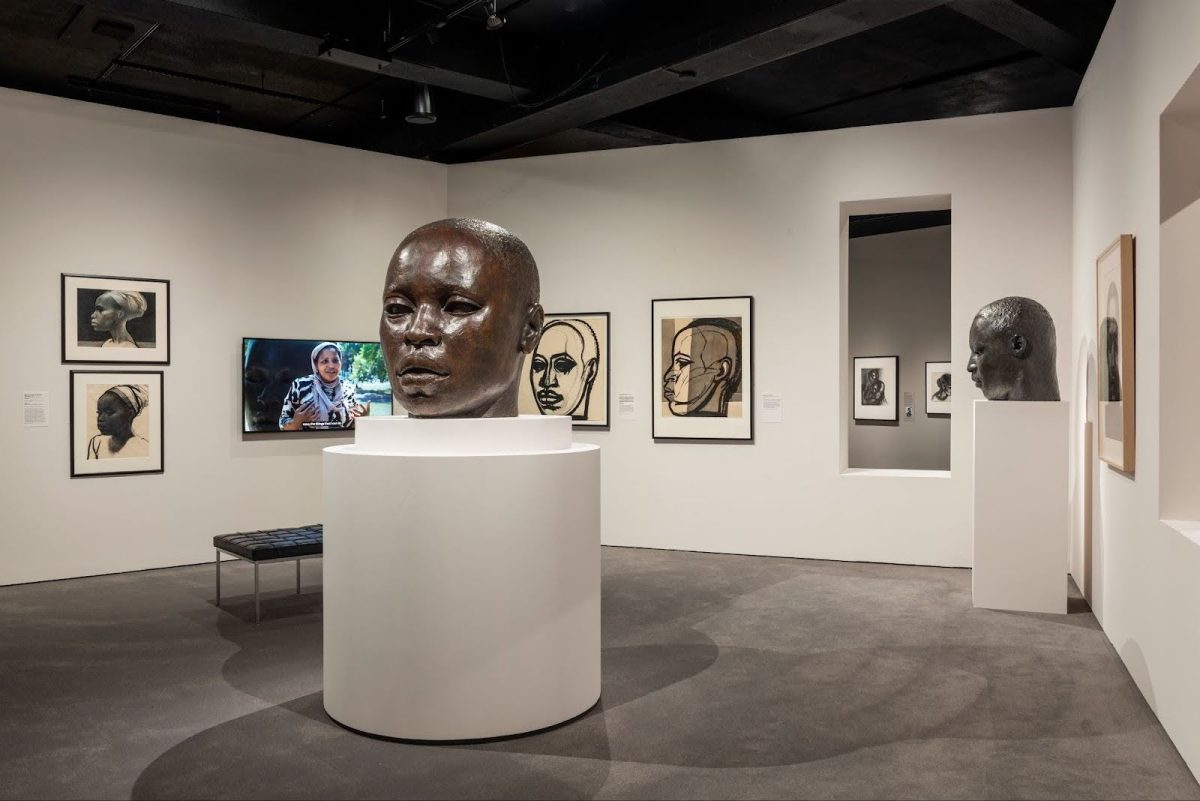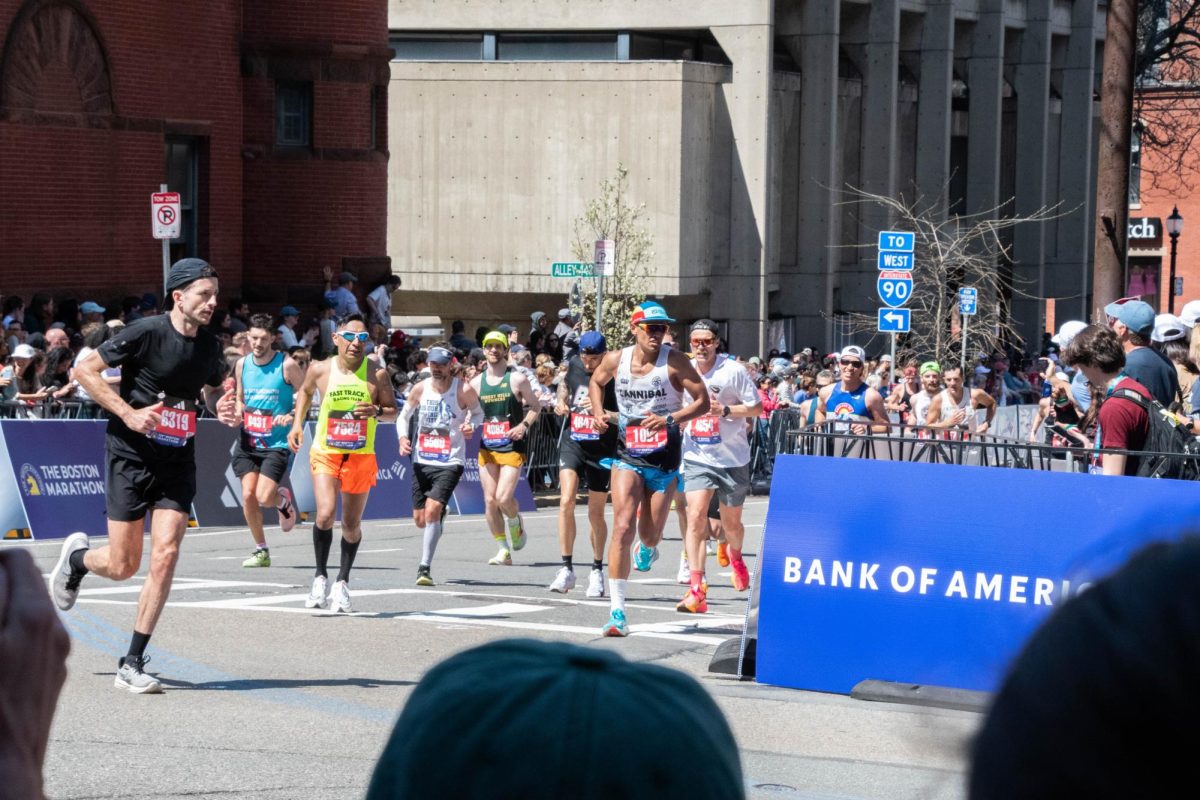By Scotty Schenck and Rebecca Sirull, news staff
At 7 p.m. the night of Nov. 7, Northeastern students began running and biking all over Boston searching for Hello Kitty alarm clocks, doing push-ups by the reflecting pool and completing a wide range of other obscure tasks. Husky Hunt had kicked off and would run for the next 24 hours, taking 50 teams on a journey across the city, all in the quest to be crowned champions.
While the hunt itself is over in a day, the winner won’t be revealed until the Resident Student Association (RSA) has finished tallying all the points, a process that can take up to a month. These points can be acquired throughout the hunt by completing a variety of tasks, many playing off this year’s zombie theme. The winners get more than just glory: prizes for the top ten teams include GoPros, JetBlue tickets and more.
Last year’s first place team “Dennis Rodman,” returned this year as “Rodman ReloaDEAD,” to defend its title, plus or minus a few members. The team’s captain, Alison Leedham, explained the careful planning necessary for the hunt, relying heavily on Microsoft Excel spreadsheets and excellent organization skills. Even for a seasoned team, the hunt proved to be a challenge.
“[Last year] was a lot more stressful… There wasn’t as much stuff, which is kind of scary because I feel like a lot of teams were probably able to accomplish a lot,” Leedham, a junior mechanical engineering major, said. “In this Husky Hunt you really had to execute everything really well.”
The night began on Centennial Common, with team captains and co-captains sent off separately to retrieve the first round of clues for their team. Many teams then chose to retreat to a home base, like a classroom or team member’s apartment, where they began sorting through the 150 clues they were first presented with: a jumble of letters, which had to be organized into words spelling out yet another riddle to be solved.
From there, teams were led to complete a series of tasks that were divided into photo challenges, video challenges, items, crafts and RSA challenges. These tasks included taking a photo of team members in a tree “escaping a zombie attack,” recreating Michael Jackson’s “Thriller” video, finding a One Direction poster and making a pasta dish for RSA members to enjoy. Most challenges were given to team members in a list to be completed at any point in the 24 hours. However, RSA challenges were also sent out through mass texts at random intervals, as well as hourly challenges held at Stetson West.
“I really liked the mind game portion of it, where there were things to solve and logic problems, like one used morse code that we had to put into a translator,” Izzie Kirsch, junior communication studies major and member of the “Jamaican Bobsledders,” team said.
Another challenge, called the zombie crawl, gave teams the opportunity to gain a 100-point bonus. It included a list of locations, somehow related to the undead, no matter how obscure. Teams would only be awarded the points for taking a photo at every place on the list, with three team members pictured, all with hands to forehead, saluting the camera.
At 7 a.m., all the teams gathered at Krentzman Quadrangle to sing a round of “Livin’ on a Prayer,” celebrating the halfway point of the hunt. Some hunters bragged about only getting three hours of sleep, while others who hadn’t slept at all scoffed between sips of caffeinated beverages.
So what leads hundreds of students each year to sacrifice sleep, energy and maybe even mental well-being to the hunt? For freshman political science major Henoss Taddessa, it was about having fun and getting involved.
“We thought it would be a fun activity to do,” Taddessa said. “It would be a nicer way to get involved in the school community and just a fun way to get involved in our city as well.”
The night of Nov. 8, each group handed in a USB drive of photos and videos along with a bag of the items they had collected, and RSA’s work began. Each challenge has an associated point value, but it is at the RSA’s discretion to award points based on creativity and perceived effort put into each task.
Despite the physical and mental limits tested throughout the Husky Hunt, teams keep coming back year after year, eager to take part in the Northeastern tradition and experience the madness for themselves.
Photo by Scotty Schenck


